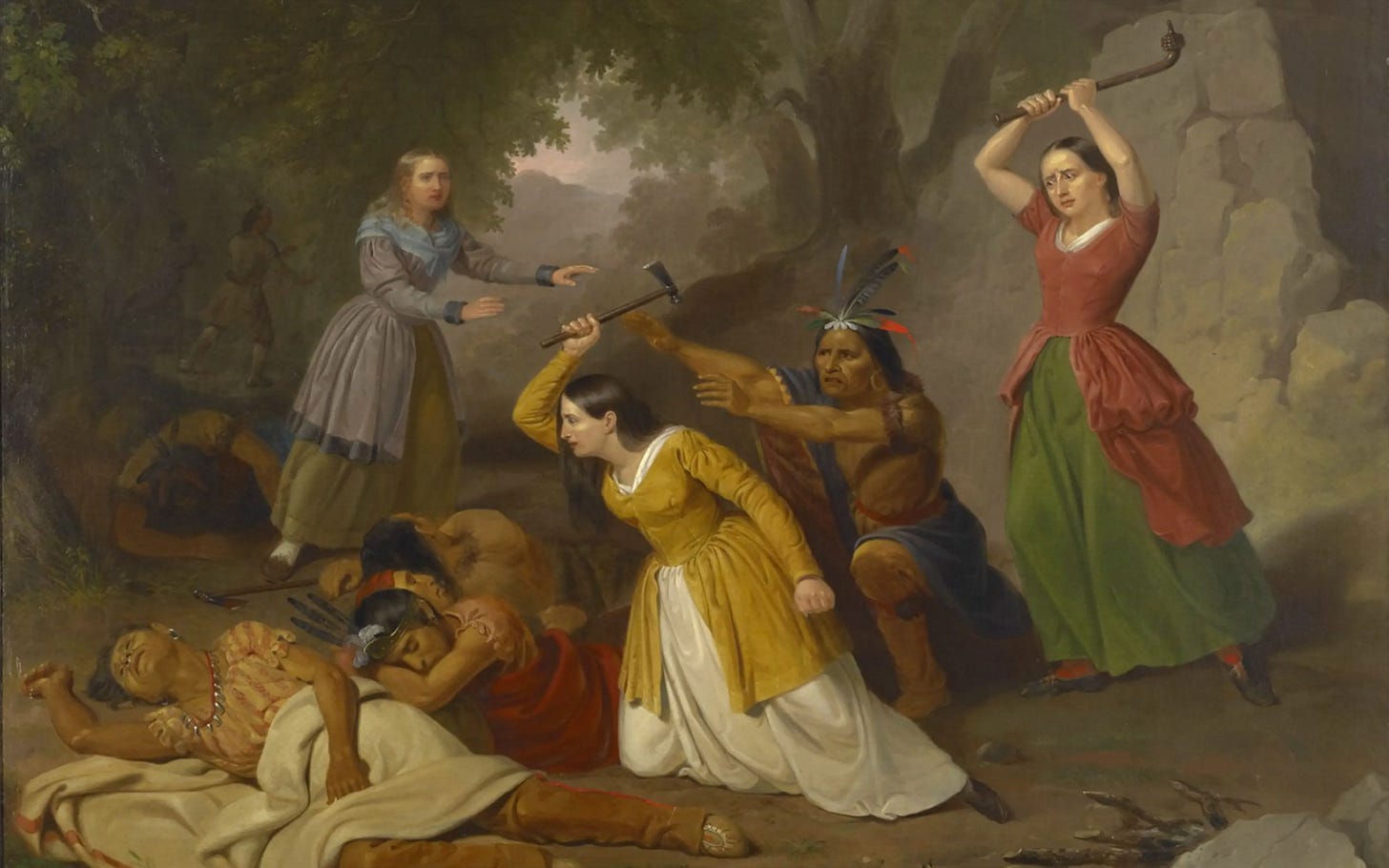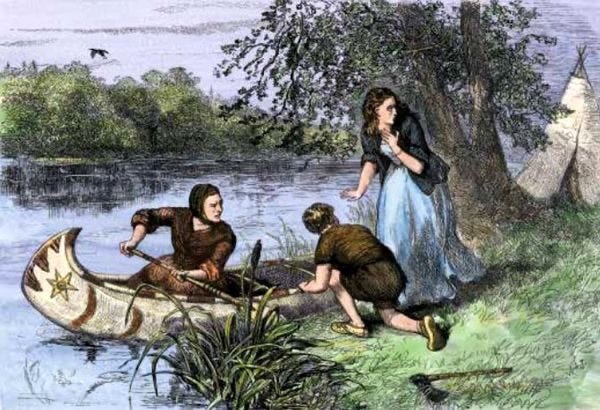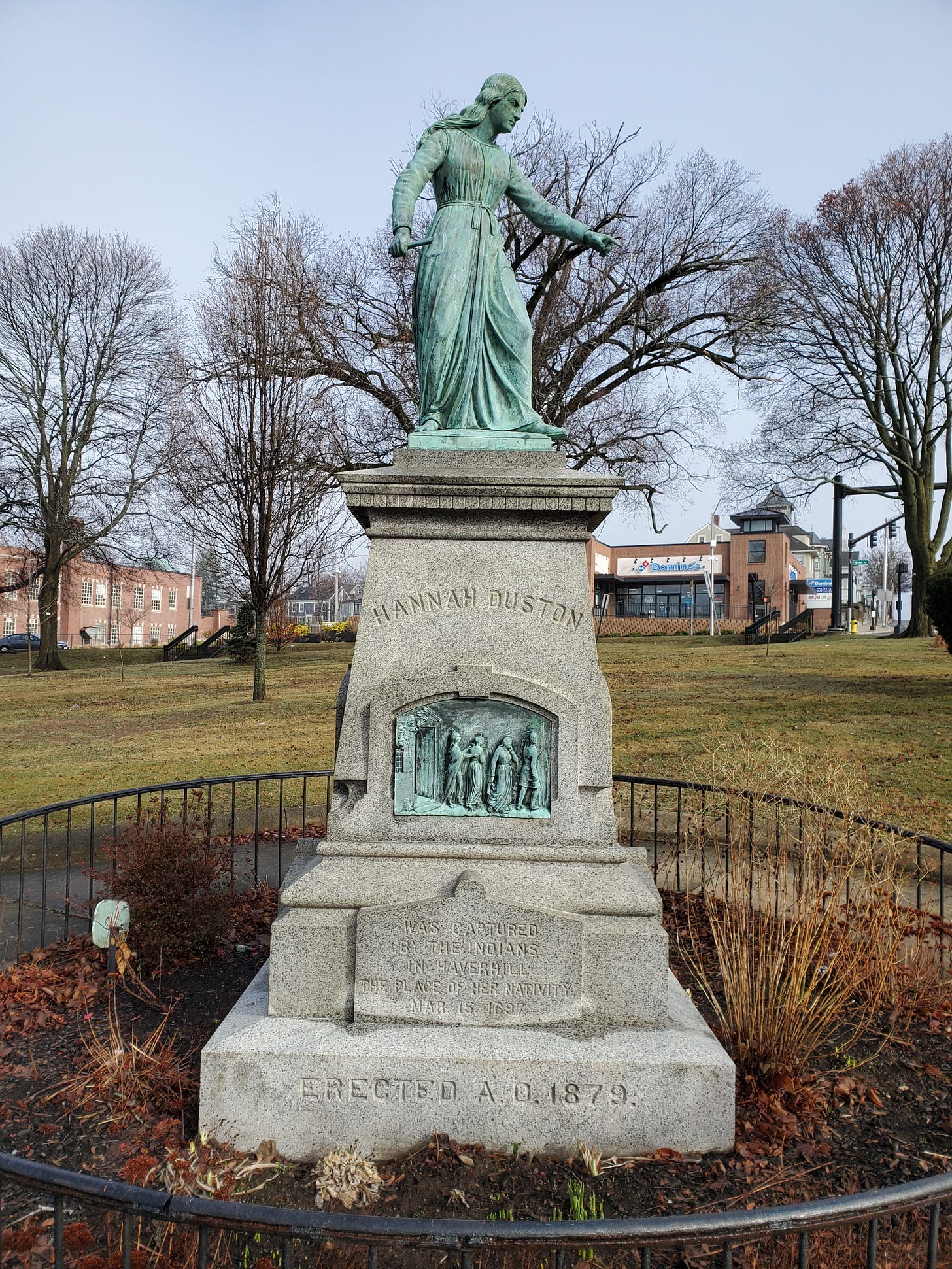Hannah Emerson-Duston of Haverhill, Massachusetts was the Puritan wife of Thomas Duston. She was the mother of nine children and the daughter of a family previously embroiled in the Salem Witch Trials (1692-1693). At 49 years old, and just six days after giving birth to her ninth child, Haverhill was raided by an Indian tribe called the Abenaki. 27 Americans were killed in the raid (half of them children) and 13 were captured.
Hannah Duston, her newborn baby, and her nurse, Mary Neff, were three of those captured. Her husband Thomas, who was tending to one of his fields, heard the war whoops of the Indians, mounted his horse, and rode to the house. Thomas fired several shots from his rifle at the indians to thwart their advance. He gathered eight of their children and was forced to escape without his wife and newborn because the savage Abenaki had drawn too close.
Sarah J. Hale (1788-1879), an American poet, wrote a poem entitled “Father’s Choice” about the heart-wrenching dilemma which Thomas Duston faced.
NOW fly, as flies the rushing wind—Urge, urge thy lagging steed!The savage yell is fierce behind,And life is on thy speed.And from those dear ones make thy choice—The group he wildly eyed,When “father!” burst from every voice,And “child!” his heart replied.There ’s one that now can share his toil,And one he meant for fame,And one that wears her mother’s smile,And one that bears her name.And one will prattle on his knee,Or slumber on his breast;And one whose joys of infancy,Are still by smiles express’d.They feel no fear while he is near;He ’ll shield them from the foe:But oh! his ear must thrill to hearTheir shriekings, should he go.In vain his quivering lips would speak,No words his thoughts allow;There ’s burning tears upon his cheek,Death’s marble on his brow.And twice he smote his clenched hand—Then bade his children fly!And turn’d, and even that savage bandCower’d at his wrathful eye.Swift as the lightning wing’d with death,Flash’d forth the quivering flame!Their fiercest warrior bows beneathThe father’s deadly aim.Not the wild cries, that rend the skies,His heart or purpose move;He saves his children, or he diesThe sacrifice of love.Ambition goads the conqueror on,Hate points the murderer’s brand—But love and duty, these aloneCan nerve the good man’s hand.The hero may resign the field,The coward murderer flee;He cannot fear, he will not yield,That strikes, sweet love, for thee.They come, they come—he heeds no cry,Save the soft childlike wail,“O father, save!” “My children, fly!”Were mingled on the gale.And firmer still he drew his breath,And sterner flash’d his eye,As fast he hurls the leaden death,Still shouting, “children fly!”No shadow on his brow appear’d,Nor tremor shook his frame,Save when at intervals he heardSome trembler lisp his name.In vain the foe, those fiends unchain’d,Like famish’d tigers chafe,The sheltering roof is near’d, is gain’d,All, all the dear ones safe!
The Indians set fire to the raided homes and marched the captured Americans through the wilderness. At the start of this forced march, Hannah was carrying her newborn daughter, Martha, when the baby was suddenly seized by an Indian who smashed her small skull upon a tree stem. Several other captives who were weakened by the journey were hacked to death by the Indians and their bodies left for the animals to scavenge.
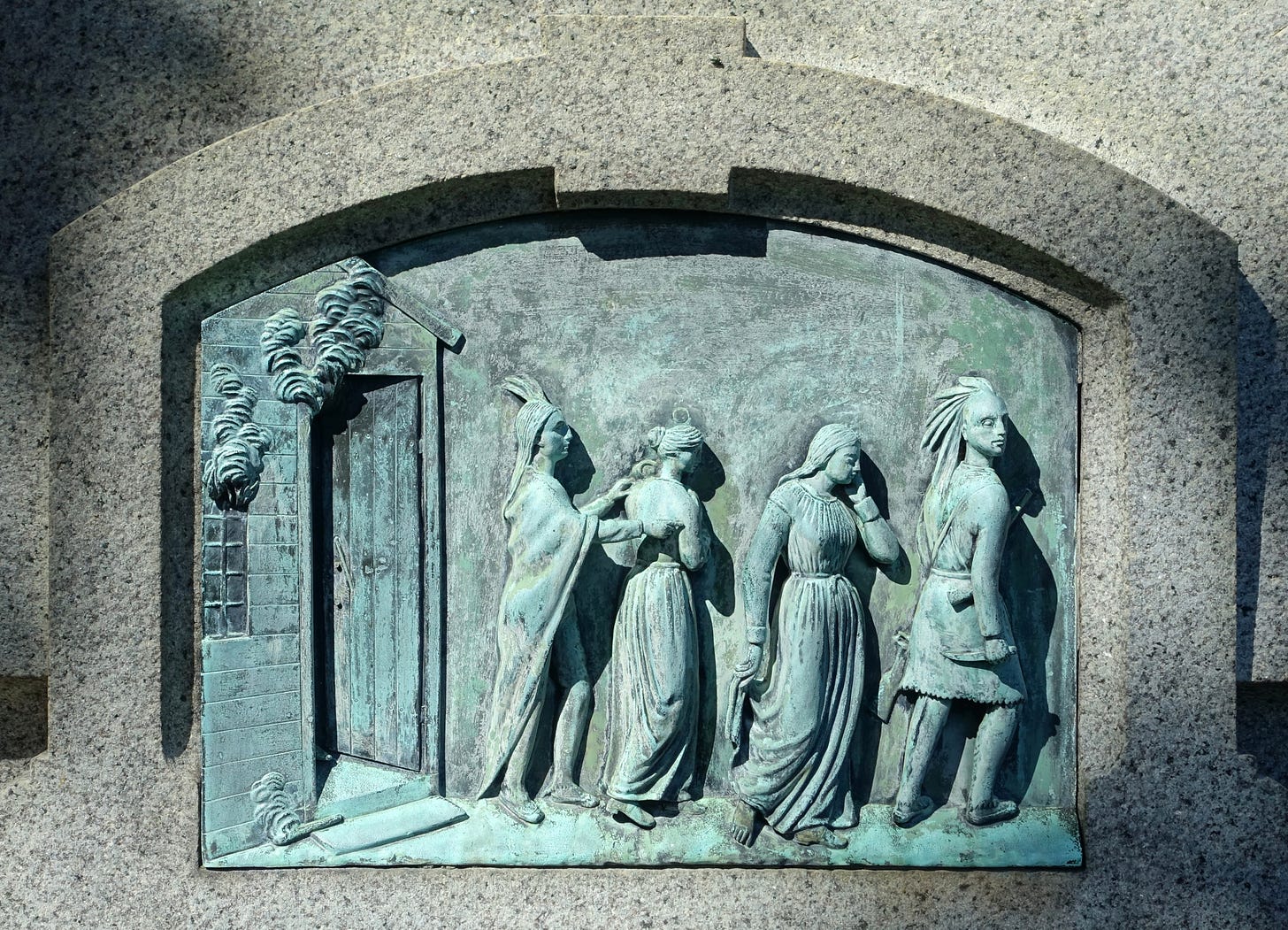
Deeply aggrieved, and stricken with a fever she had prior to her capture, Hannah was forced to march 150 miles through the New England snow. She silently internalized this grief and anger, pressing on despite believing that all she loved had been lost — including her husband and other eight children.
Eventually the captives were brought to a confluence along the Merrimack River and told that they would soon have to “run the gauntlet” — an Indian trial wherein they would be stripped naked and forced to run through an army of Indians that would lash, stone, and spear them. Whoever happened to survive this ordeal would be rewarded with either adoption into the tribe or enslavement to the French. At one point, when Hannah and Mary Neff were beseeching the Lord in prayer, one Abenaki man commented, “What need do you have to trouble yourself? If your God will have you delivered, you shall be so!”
Hannah, Mary, and a teenage boy named Samuel Lennardson, who had been a captive of the tribe for nearly two years, were taken to an island on the Merrimack River by their captors — an Abenaki family consisting of two men, two women, and six children.
Starved and frost bitten, the three were forced to sleep outside on the island as the Indians chanted and drank merrily in their shelter. Hannah laid down and was patiently waiting for the slightest vulnerability to emerge. In her mind, she surmised that because she was taken to a land without law, that God would not look unfavorably upon her for dealing justice to the Indians who murdered her daughter and kinfolk.
Eventually, she could see that inside the shelter, all of the Indians had fallen asleep, with no one to stand guard.
She saw this as her time to strike and awoke Mary and Samuel who were eager to assist her in an escape. They armed themselves with tomahawks and stood over their sleeping captors.
Hannah drove the axe into the skull of one of the Abenaki men, before Samuel buried his axe into a second. They moved through the shelter, killing all of the Indians except for one teenage boy and one woman who awoke and managed to escape into the freezing night.
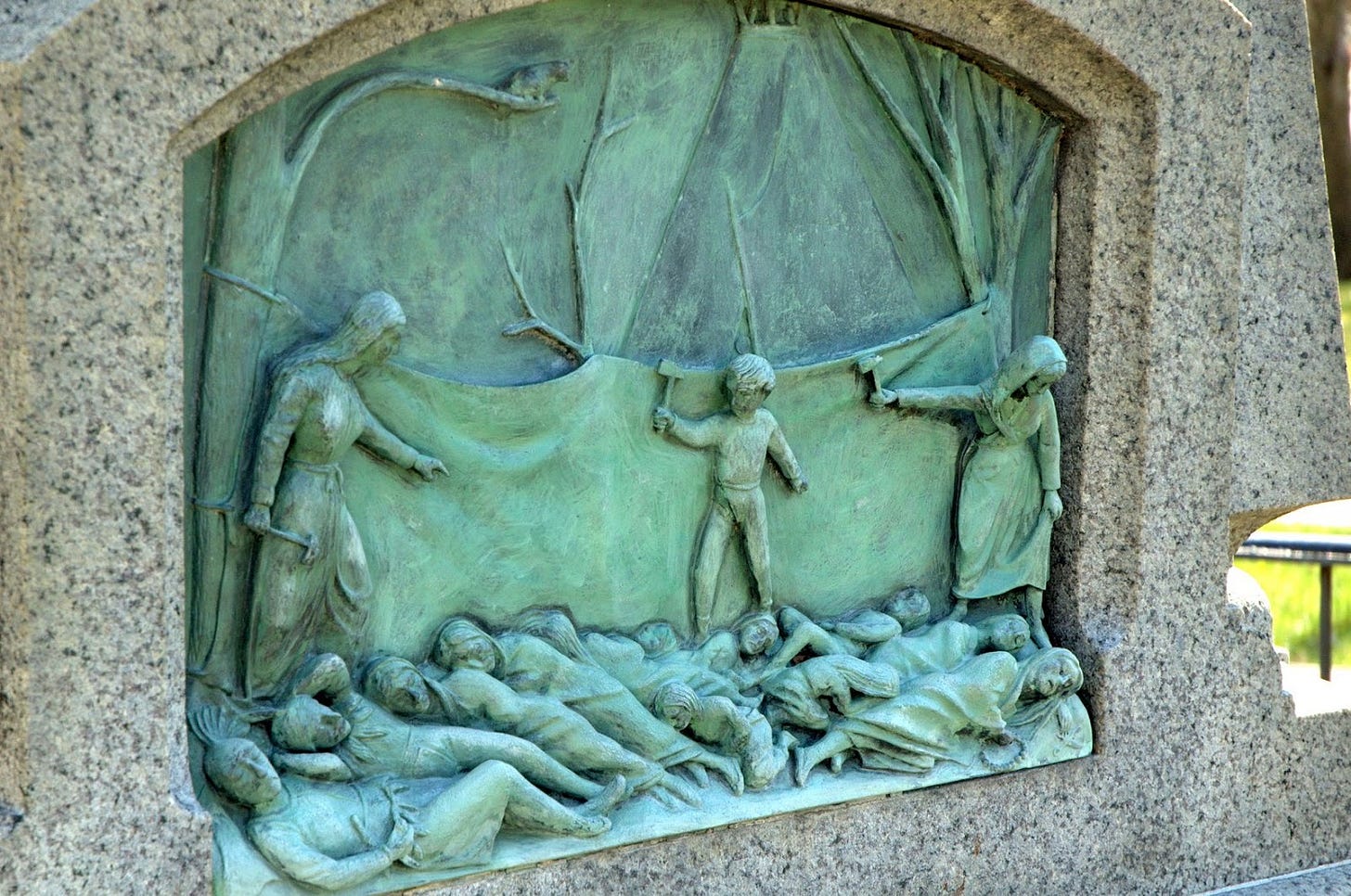
Hannah had collected the scalps of the ten Indians they had killed, for both payment and proof of their exploits. The three Americans gathered what supplies they could from the Indian encampment and canoed down the swollen Merrimack River by night until they reached their home of Haverhill where Hannah had found her husband and 8 children alive.
Hannah Duston and her story were then deposited into the heart of our nation as a treasured tale of American grit and heroism.
All of these harrowing exploits were carried out by an unlikely character in Hannah Duston — a woman who would be considered elderly for her time period. She was kidnapped, terrorized with the murder of her baby, starved, and forced to march over 100 miles with a raging fever — less than a week after giving birth. In the years following Hannah’s return, her husband Thomas, who was a skilled brick mason, finished building their new home, the Duston Garrison house.
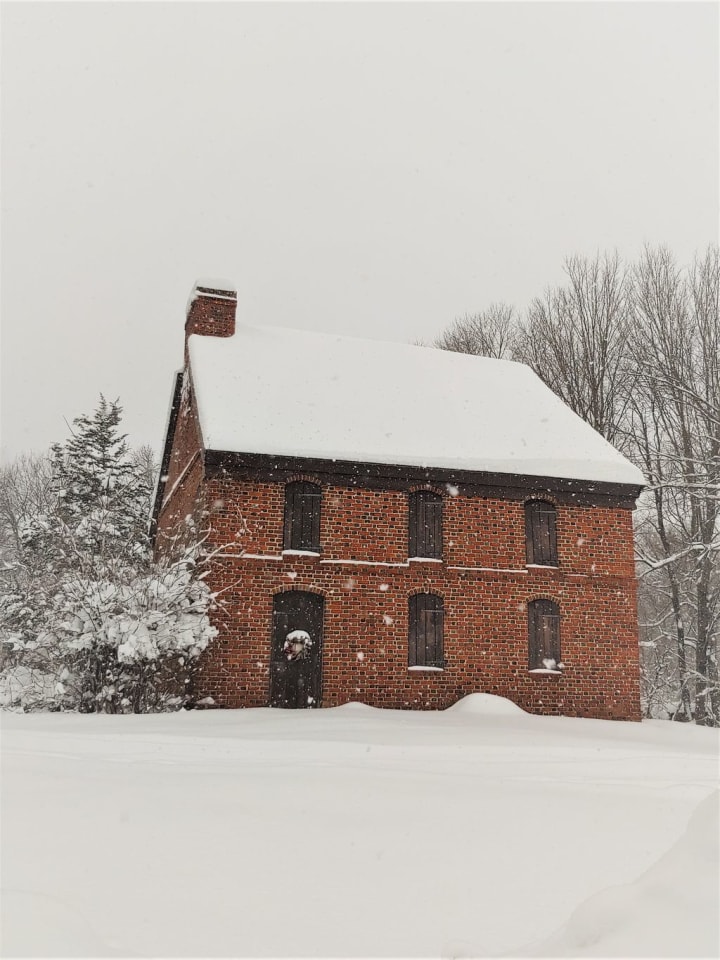
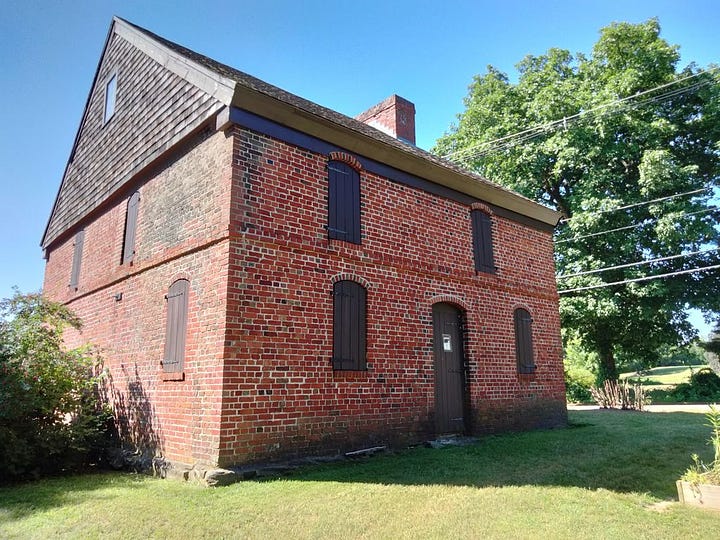
Deservedly so, she was the first woman in America to receive her own monument. Hannah was all of what it meant to be an American woman — possessing a capable and rugged femininity. She ought to be more of an inspiration to American women as our world moves into a new age of barbarism wherein the white race is seemingly weakened and surrounded.
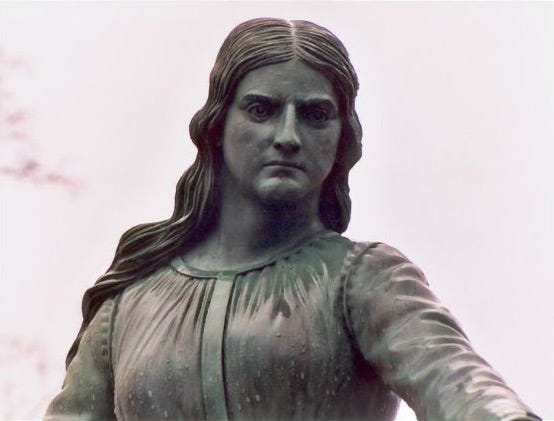
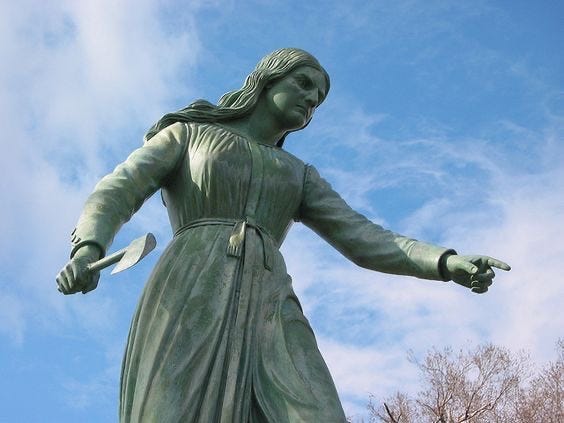
Hannah Duston well embodies the quiet ferocity within the race that could be unsheathed and wielded if we mustered the will. In her mind, all was lost and yet she continued to fight. We should, at the very least, be capable of matching the tenacity of a weakened, sick, and starving postpartum woman who had nothing but an axe and some gumption. The Lord does not command us to lie down and die as cowards. God loves an honorable fighter, whether he wrestles with flesh or with spirit. Hannah wrestled with both and won, as she beseeched the Lord Jesus Christ in prayer and took a hatchet to her captors.
Lord Jesus Christ have mercy upon the soul of Hannah Duston and upon the American race.
May her memory be eternal.


